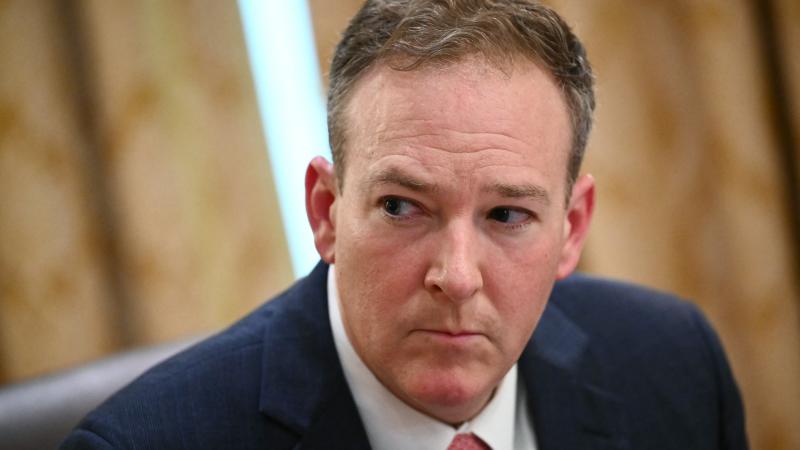No more summer vacation? Five unexpected things blamed on climate change
In some instances, the opposite of some expert predictions surrounding climate change have happened instead.
Over the weekend, The New York Times ran an article suggesting "the end of the summer vacation" could be on the horizon due to "scorching heat to fires, floods, tornadoes and hail storms driven by climate change."
"You can’t escape the orange," author Mac Schwerin writes, "swaths of tangerine, traffic cone and burnt sienna on maps indicating record high temperatures" worldwide, referencing the ongoing 2023 heat waves as evidence to support his thesis.
Continuing, he asks when—not if—the world reaches a point where people are unable to "vacation through it?" and suggests "our relationship to travel has reached a tipping point."
Dr. John Christy, Professor of Atmospheric Science and Director of the Earth System Science Center at The University of Alabama told Just the News that media descriptions of the 2023 heatwave have been manipulated and that, when factoring in context, America "is not in record territory" as many are reporting.
Nonetheless, the mainstream media has continually invoked climate change in an attempt to blame it for an array of different things.
Here are four other examples that didn't – or might not – pan out:
An increase in shark attacks
Time Magazine in 2016 used a Progress In Oceanography study to forge a causal link that that climate change is "pushing sharks and other marine species northward" and therefore "warm weather means people are more likely [to] go swimming, a potentially fatal combination."
The National Oceanographic and Atmospheric Administration (NOAA) says the meme of increased shark attacks – without regard to any cause – is an unsupported myth: "Due to media exposure and the viral nature of reporting shark attacks, there’s a misperception that sharks are bloodthirsty predators that hunt humans. The year 2022 had a lower number of unprovoked shark bites compared to the 5-year average between 2017–2021."
Longer days
In 2002, the BBC wrote of Belgian scientists who published a study in Geophysical Research Letters, which the outlet said found "increasing levels of carbon dioxide (CO2) in the atmosphere will slow the Earth's rotation." The actual increase cited in the study says that the probable increase would be 11 microseconds per decade during this century. That works out to one millionth of a second per year, if true.
The Guardian made a similar claim in 2015, citing a Harvard University study which concluded that melting glaciers are also contributing to Earth’s allegedly slowing rotation. Even more recently, many have pushed this view that the rotation is dwindling.
Two decades post-BBC’s report, however, and the opposite appears to have transpired. Earth had its shortest day on record in June 2022 and is spinning faster than it was half a century ago, according to UK’s National Physical Laboratory.
The Southern Border Crisis
Illegal immigration at the U.S.-Mexico border dramatically increased when Biden entered office in 2021. Around eight months into his first year, CNN headlines blared that "Climate change is intensifying the US border crisis. It will only get worse." The outlet emphasized Haiti’s infamous 7.2-magnitude earthquake as the main driver for the thousands of Haitian migrants surging to the border at Del Rio, Texas.
In support of this theory, the cable news outlet turned not to a climatologist or expert in natural sciences, but instead relied upon Keston K. Perry, a political economist and assistant professor of Africana studies at Williams College, who said “making the connection between existing inequalities that are linked to colonialism and enslavement of African peoples is important for us to understand how these communities have become particularly vulnerable and exposed to climate change.”
Some commentators have instead blamed increased illegal border crossings on a "beacon effect" after President Biden vowed that illegal aliens would be eligible for health care, said "nobody" would be deported during his first 100 days, and promised a pathway to citizenship for those residing in the US.
Worsening acne
In June 2022, Dermatology Times suggested a potential causation between climate change and worsening "acne flares" in people.
Author Brandon May touted an International Journal of Dermatology study that yielded "clear evidence" that things like air pollution, humidity, UV rays, temperature, and more affect acne breakouts and uses this to justify his claim that "fossil fuel combustion and a warming world" are affecting skin disease and acne in particular.
The study itself made clear that nothing had been proven and the theory was still in a speculative stage: "Despite the important association between climate change and skin health, there are still critical knowledge gaps regarding this association and its relation to driving or exacerbating skin diseases."
Follow Addison on Twitter.
















